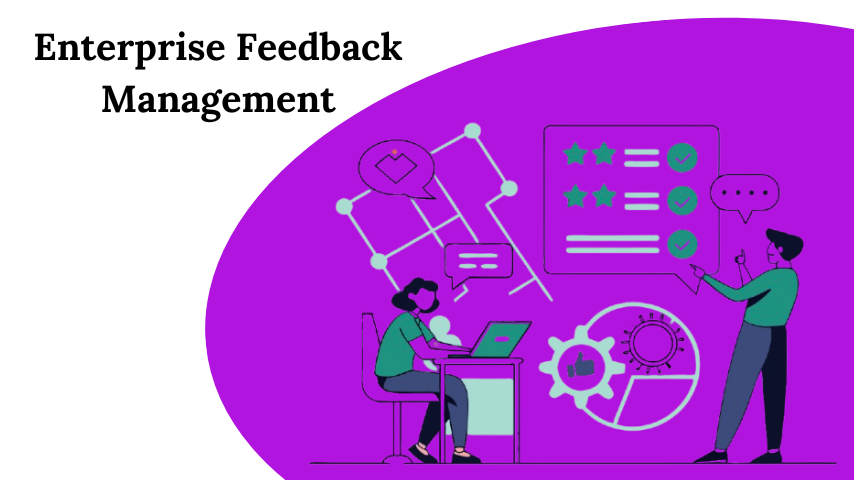In today’s rapidly evolving business landscape, management feedback has emerged as a critical component of organizational success. enterprise feedback management is not just a trendy corporate buzzword—it’s a strategic approach that can transform workplace dynamics, boost employee performance, and drive overall organizational growth. This comprehensive guide will explore the multifaceted importance of management feedback and why it should be a cornerstone of any successful business strategy.
The Fundamental Role of Management Feedback
Management feedback is more than just an annual performance review or a occasional conversation. It’s a continuous process of communication that helps employees understand their strengths, identify areas for improvement, and align their efforts with organizational goals. The significance of effective feedback cannot be overstated in today’s competitive business environment.
Key Benefits of Robust Feedback Mechanisms
- Performance Improvement
- Provides clear direction for employees
- Helps identify skill gaps
- Creates opportunities for targeted professional development
- Enhanced Employee Engagement
- Demonstrates organizational investment in employee growth
- Increases job satisfaction
- Reduces turnover rates
- Builds a culture of open communication
- Strategic Organizational Alignment
- Ensures individual goals match company objectives
- Facilitates better understanding of organizational expectations
- Promotes a unified corporate vision
The Psychology Behind Effective Feedback
Understanding the psychological aspects of feedback is crucial for enterprise feedback management. Employees are not just looking for criticism or praise—they seek meaningful, constructive dialogue that supports their professional growth.
Psychological Principles of Feedback
- Timely Delivery: Immediate feedback is more impactful than delayed communication
- Balanced Approach: Combining positive reinforcement with constructive criticism
- Specific and Actionable: Providing clear, implementable suggestions
- Two-Way Communication: Encouraging dialogue rather than one-sided monologues
Implementing an Effective Enterprise Feedback Management Strategy
Best Practices for Management Feedback
- Regular Communication
- Schedule consistent feedback sessions
- Use multiple communication channels
- Create both formal and informal feedback opportunities
- Technology Integration
- Utilize feedback management software
- Implement real-time tracking systems
- Leverage data analytics for insights
- Training and Development
- Train managers in effective communication techniques
- Develop feedback-giving skills across leadership
- Create a standardized feedback framework
Common Challenges in Management Feedback
Overcoming Feedback Obstacles
- Fear of Conflict: Managers often avoid difficult conversations
- Lack of Skills: Insufficient training in feedback techniques
- Time Constraints: Busy schedules limiting meaningful interactions
- Cultural Barriers: Organizational cultures that discourage open communication
Measuring the Impact of Feedback
Key Performance Indicators (KPIs) for Feedback Effectiveness
- Employee engagement scores
- Retention rates
- Performance improvement metrics
- Team productivity levels
- Employee satisfaction surveys
Technology and Enterprise Feedback Management
Modern enterprise feedback management leverages advanced technologies to streamline and enhance feedback processes:
- AI-Powered Analytics
- Real-Time Feedback Platforms
- Mobile Feedback Applications
- Integrated Performance Management Systems
Q1: How Often Should Feedback Be Given?
A: Ideally, feedback should be continuous. While formal reviews might occur quarterly or annually, informal feedback should be a regular part of management interactions.
Q2: What Makes Feedback Effective?
A: Effective feedback is specific, timely, balanced, actionable, and delivered with empathy and clarity.
Q3: How Can Small Businesses Implement Feedback Strategies?
A: Start with regular one-on-one meetings, create a transparent communication culture, and gradually develop more sophisticated feedback mechanisms.
Q4: What Role Does Technology Play in Feedback Management?
A: Technology enables real-time tracking, provides data-driven insights, facilitates remote feedback, and creates more transparent communication channels.
Q5: How Does Feedback Impact Employee Retention?
A: Consistent, constructive feedback makes employees feel valued, understood, and invested in their professional growth, significantly reducing turnover rates.
Conclusion
Enterprise feedback management is not a luxury—it’s a necessity in modern business. By creating a robust, technology-enhanced feedback ecosystem, organizations can unlock unprecedented levels of employee engagement, performance, and satisfaction.
The most successful companies view feedback not as a periodic task but as a continuous, dynamic process of communication and growth. Investing in comprehensive feedback strategies is investing in your most valuable asset—your people.
Key Takeaways:
- Feedback is a strategic tool for organizational success
- Technology and human insight must work together
- Continuous improvement requires continuous communication
Call to Action
Evaluate your current feedback mechanisms. Are they truly supporting your employees’ growth and your organization’s objectives? The time to enhance your enterprise feedback management strategy is now.
References and Further Reading
- Society for Human Resource Management (SHRM) Feedback Guidelines
- Harvard Business Review: Feedback Strategies
- Deloitte Insights on Performance Management












